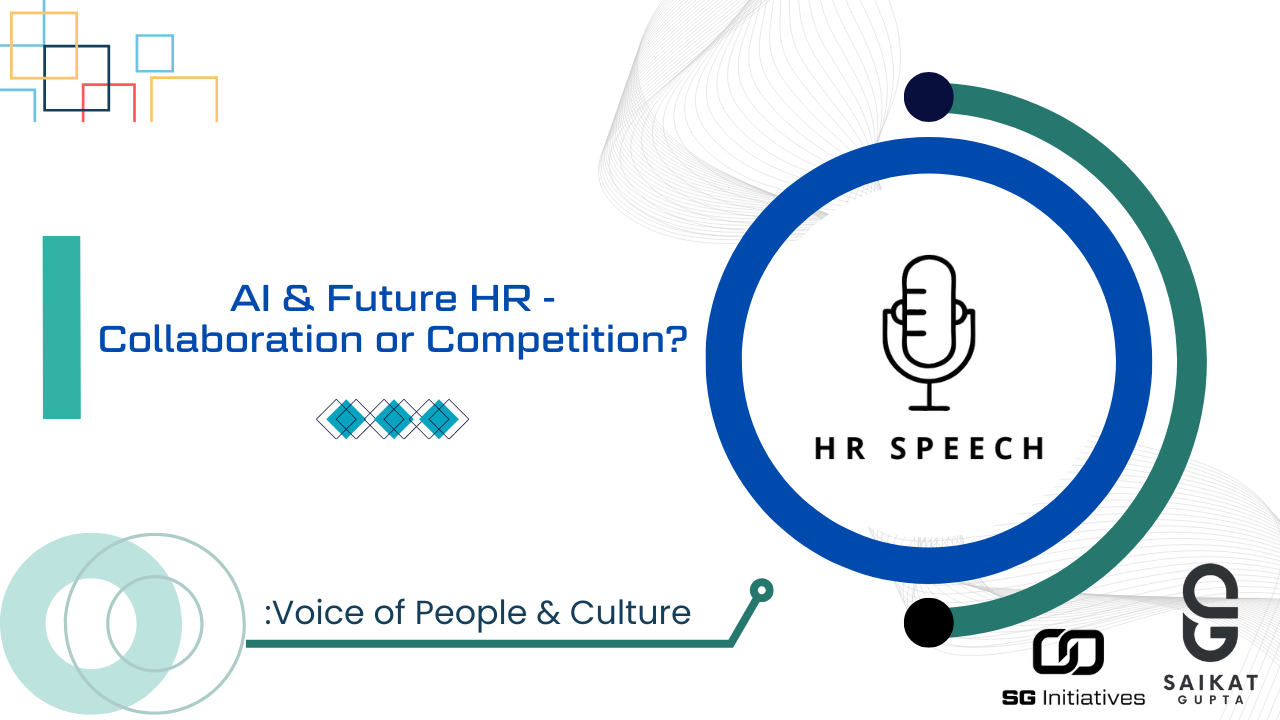
“AI won’t replace HR professionals—but HR professionals using AI will replace those who don’t.”
As Artificial Intelligence (AI) continues its rapid evolution, few fields are feeling the disruption as profoundly as Human Resource Management. From recruitment chatbots to predictive analytics for employee attrition, AI is becoming deeply embedded in the HR function.
But this raises a crucial question:
Is AI here to collaborate with HR—or compete against it?
Let’s unpack this unfolding story and explore where the future is really headed.
🤖 What AI Is Already Doing in HR
AI is no longer a distant vision. It’s already reshaping core HR functions:
✅ Recruitment & Talent Acquisition
- Resume screening using Natural Language Processing (NLP)
- Chatbots answering candidate queries 24/7
- Predictive analytics assessing candidate fit and likelihood to accept offers
Stat: According to SHRM (2024), companies using AI in hiring reported a 30% faster time-to-fill and 25% cost reduction.
✅ Employee Engagement
- Sentiment analysis from internal surveys or Slack conversations
- AI-driven pulse surveys triggering real-time culture insights
✅ Learning & Development
- Personalized learning journeys based on skill gaps
- Adaptive content recommendations using AI algorithms
✅ Performance Management
- Continuous feedback loops powered by AI
- Goal alignment tracked via intelligent dashboards
Clearly, AI is accelerating, not just automating, what HR teams can achieve.
⚖️ Collaboration: The Case for AI as a Strategic Partner
- Time Liberation
AI takes over repetitive, low-value tasks—freeing HR to focus on strategic work: culture building, leadership development, and change management.
- Data-Driven Decisions
AI helps HR become more analytical and proactive, replacing gut-based decisions with evidence-backed insights. This elevates HR’s credibility in the boardroom.
Example: IBM’s Watson AI helped reduce employee attrition by predicting flight risk with 95% accuracy, enabling early intervention.
- Bias Reduction (When Done Right)
AI can help minimize unconscious bias—though only when trained on unbiased datasets. With proper governance, AI can support fairer, more inclusive hiring.
- Personalization at Scale
From onboarding to training, AI can tailor experiences to every employee’s role, personality, and pace—something impossible manually.
⚠️ Competition: The Risks and Realities
- Job Redundancy in Transactional Roles
Roles heavily dependent on manual tasks—payroll, scheduling, basic HR support—are most vulnerable.
By 2026, up to 40% of transactional HR tasks could be fully automated (Gartner 2025).
- Loss of Human Touch
HR is not just a process—it’s about empathy, trust, and relationships. AI can’t replace the emotional intelligence that human professionals bring.
- Ethical and Legal Concerns
- Biased algorithms
- Lack of transparency in decision-making
- Privacy concerns in employee monitoring
These issues need clear ethical frameworks and regulatory oversight, or trust in AI-powered HR could collapse.
📊 Human + AI: The Hybrid Model Wins
The future is not a binary choice.
The true power lies in collaboration—a human-AI hybrid model where machines do the math, and humans make the call.
The best HR teams will blend AI’s precision with human judgment and empathy—not choose between them.
🔮 The Future of HR Roles
As AI takes over the transactional, HR will evolve into roles such as:
- People Scientist
- Employee Experience Architect
- Workplace Futurist
- Organizational Agility Coach
- Ethical AI Officer
These roles combine tech fluency, empathy, data storytelling, and change leadership—the true skills of tomorrow’s HR professionals.
🧭 Final Thought
So, is AI a collaborator or a competitor?
The answer depends on how we choose to embrace it.
If HR leaders resist AI, they risk being replaced.
If they collaborate with it, they become more strategic, more human, and more impactful than ever.
The future of HR isn’t about humans versus machines.
It’s about humans empowered by machines—leading the way into a smarter, more personalized, and more human-centric world of work.
💬 What’s your view? Has AI already changed how your HR team operates? Do you fear it—or do you see it as your strongest ally?